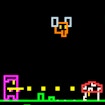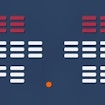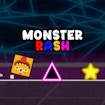Digital Fortune-Telling: Why Prediction Games Are Captivating Online Audiences
In a world filled with decisions, uncertainties, and curiosity about the future, it’s no surprise that digital fortune-telling games have carved out a niche in online entertainment. These lighthearted experiences draw on the human desire for answers—whether serious or playful—and package them into short, engaging interactions that are accessible with just a tap or a click.
Whether you’re asking, “Will I pass my test tomorrow?” or “Should I order pizza tonight?”, modern prediction games offer a satisfying sense of closure, often with a touch of humor, mystery, or nostalgia. And now, thanks to HTML5, these virtual oracles are more accessible than ever.
The Psychology Behind the “Magic Answer”
At the core of every prediction-based game lies one simple hook: the thrill of receiving an answer. Humans are wired to seek clarity and meaning, even in playful formats. It’s why horoscopes, tarot cards, and even fortune cookies have endured for centuries.
Digital fortune games tap into this psychology in a new way. By simulating the act of asking a question and receiving an answer—be it yes, no, or something cryptically in between—players get a small dose of anticipation and emotional payoff. The simplicity of the interaction, paired with personalized prompts, makes it feel more intimate than traditional casual games.
HTML5 and the Rise of Instant Oracle Games
With HTML5, developers can create fast, lightweight fortune games that run seamlessly on both desktop and mobile browsers. No need for downloads or accounts—users can engage instantly. These games are perfect for short attention spans and mobile-first audiences who want quick, satisfying entertainment.
The format also allows for slick animations, voice effects, haptic feedback, and responsive design, creating a more immersive and delightful experience. Whether it’s a floating crystal ball, a mystical spinning wheel, or a digital “8-ball,” the result feels interactive and magical.
Entertainment Meets Interaction
Prediction games aren’t just for curiosity—they also serve as fun icebreakers, stress relievers, or daily rituals. Many users visit these games to start their morning with a laugh, settle a minor debate with friends, or simply pass the time with something whimsical.
Incorporating humor, randomness, or thematic design (like cosmic visuals or mystic sounds) enhances the overall experience. Some prediction games go a step further by blending in mini-games, achievements, or fortune-based challenges, keeping users engaged beyond a single interaction.
Shareable and Social by Nature
One reason prediction-style games thrive in today’s digital ecosystem is their shareable nature. Answers can be quirky, dramatic, or surprisingly relevant—making them perfect for screenshots, tweets, or group chats. The social virality helps spread the game organically and draws in new players who want to “ask their own question.”
With clever integration, these games can even become viral tools on platforms like TikTok or Instagram Stories, where users record themselves interacting with the digital “oracle” and reacting to the result.
Low Commitment, High Reward
Prediction-based games exemplify the modern mantra of low effort, high emotional return. Unlike strategy or puzzle games that demand focus and time, these games are frictionless and intuitive. The payoff—an answer, a laugh, a surprise—is instant. This makes them ideal for casual players looking for a dopamine hit in under 30 seconds.
They also allow users to project their own thoughts and questions into the game, making the experience feel personalized even if the outcomes are randomized.
Conclusion
In a gaming world saturated with complex mechanics and intense competition, prediction and fortune-telling games offer a refreshingly simple and delightful escape. Whether they deliver laughter, insight, or just a playful distraction, these digital oracles have become a charming staple of browser-based entertainment.
With HTML5 ensuring universal accessibility and mobile responsiveness, these games are likely to remain popular—offering tiny moments of magic in our everyday lives.





















